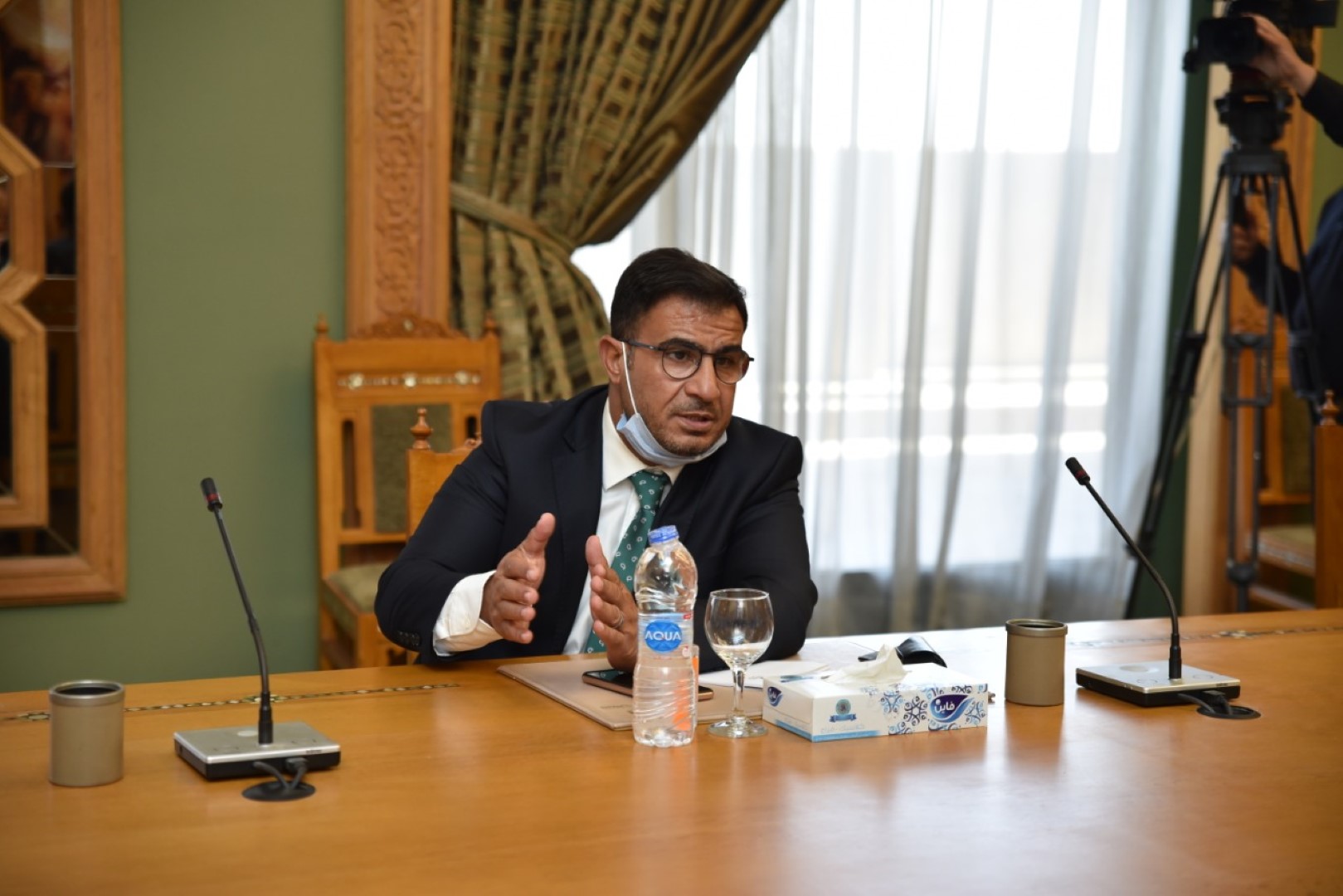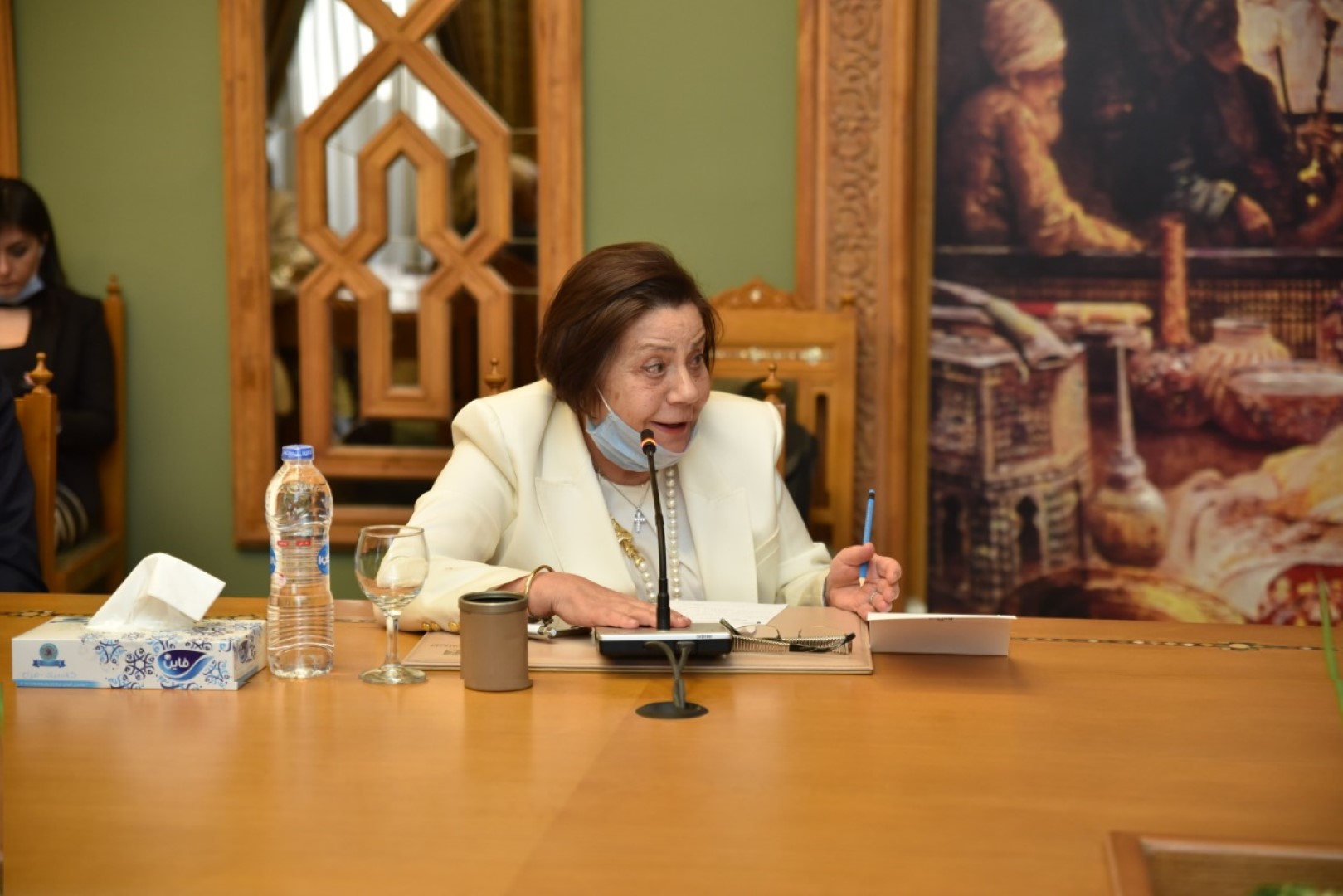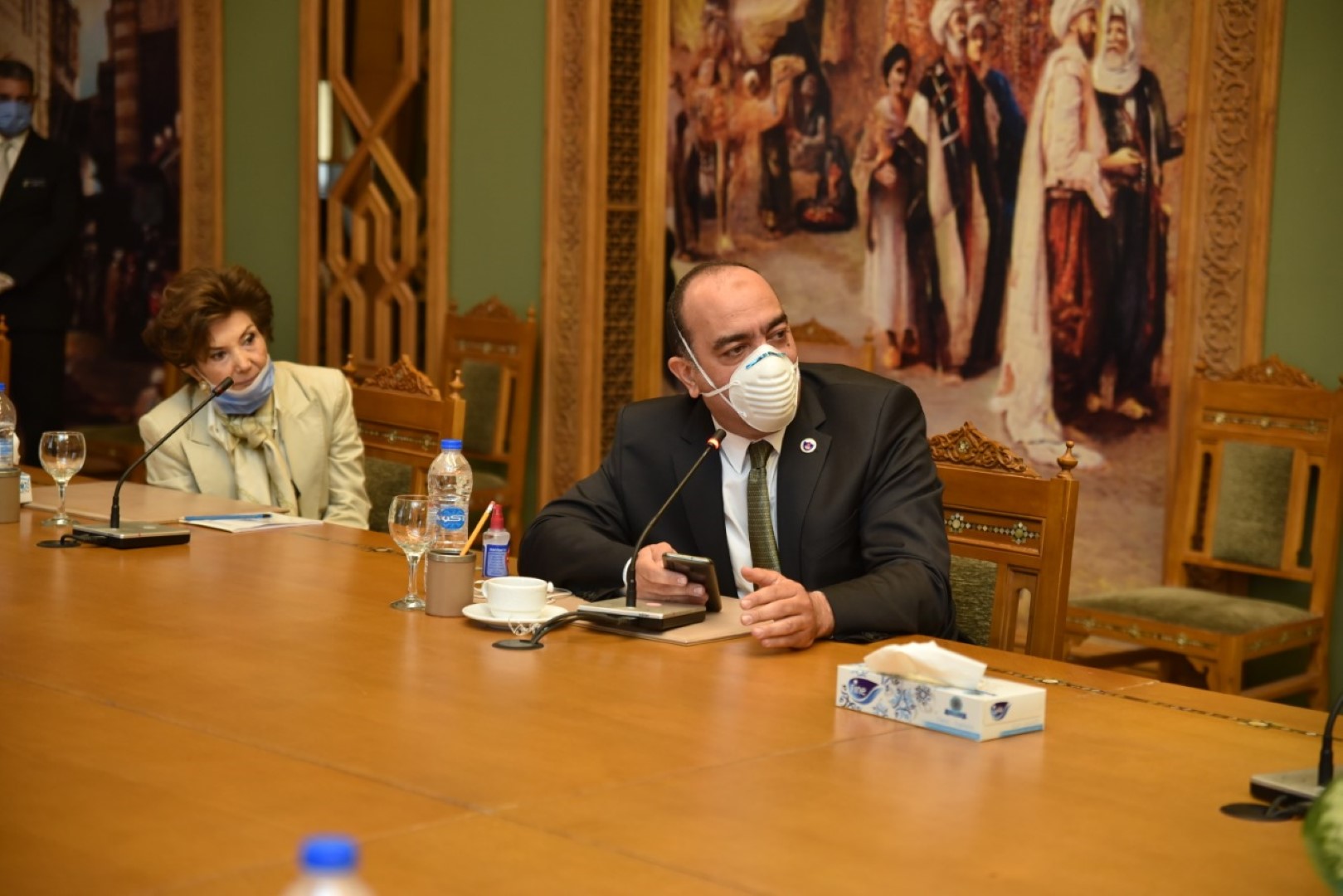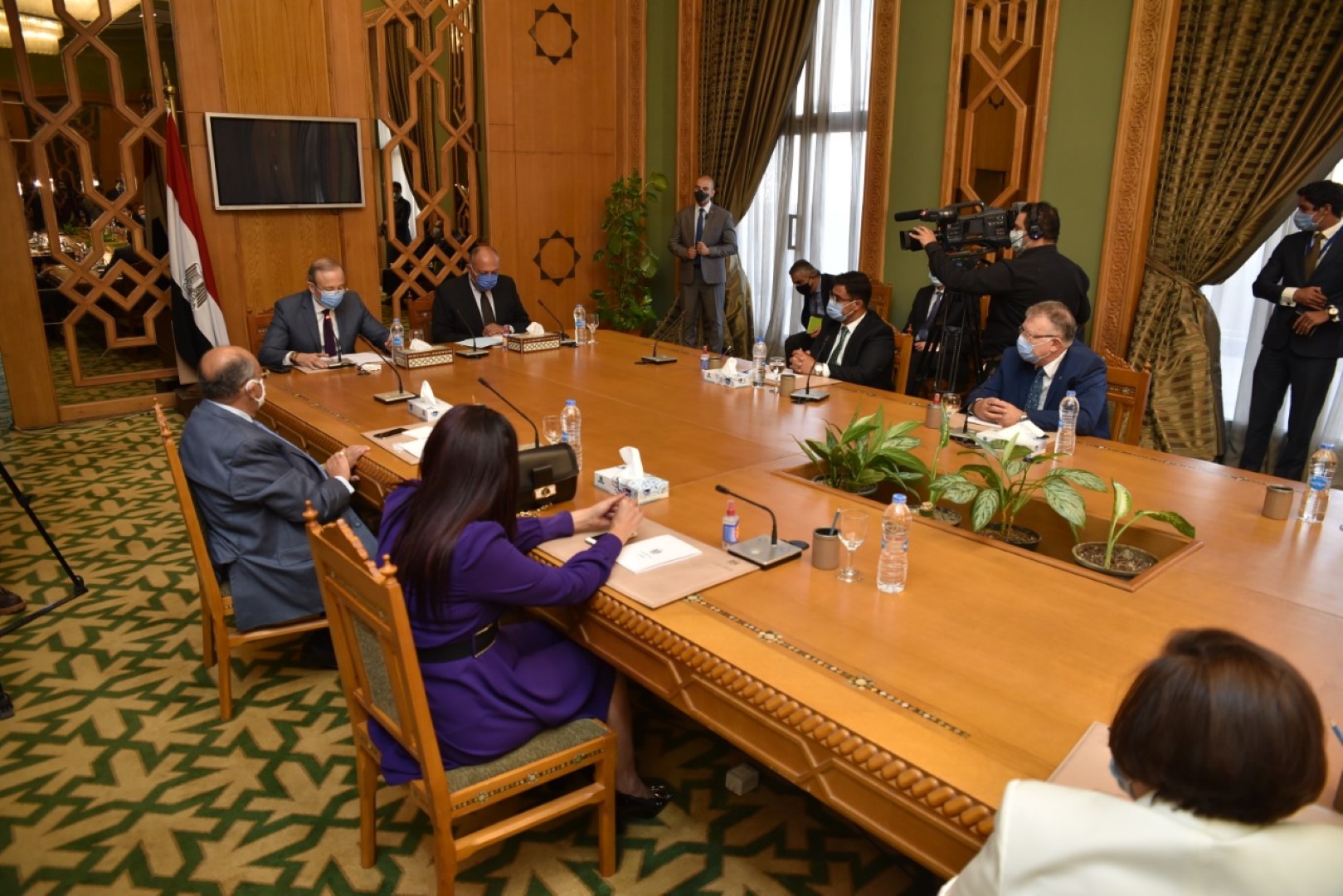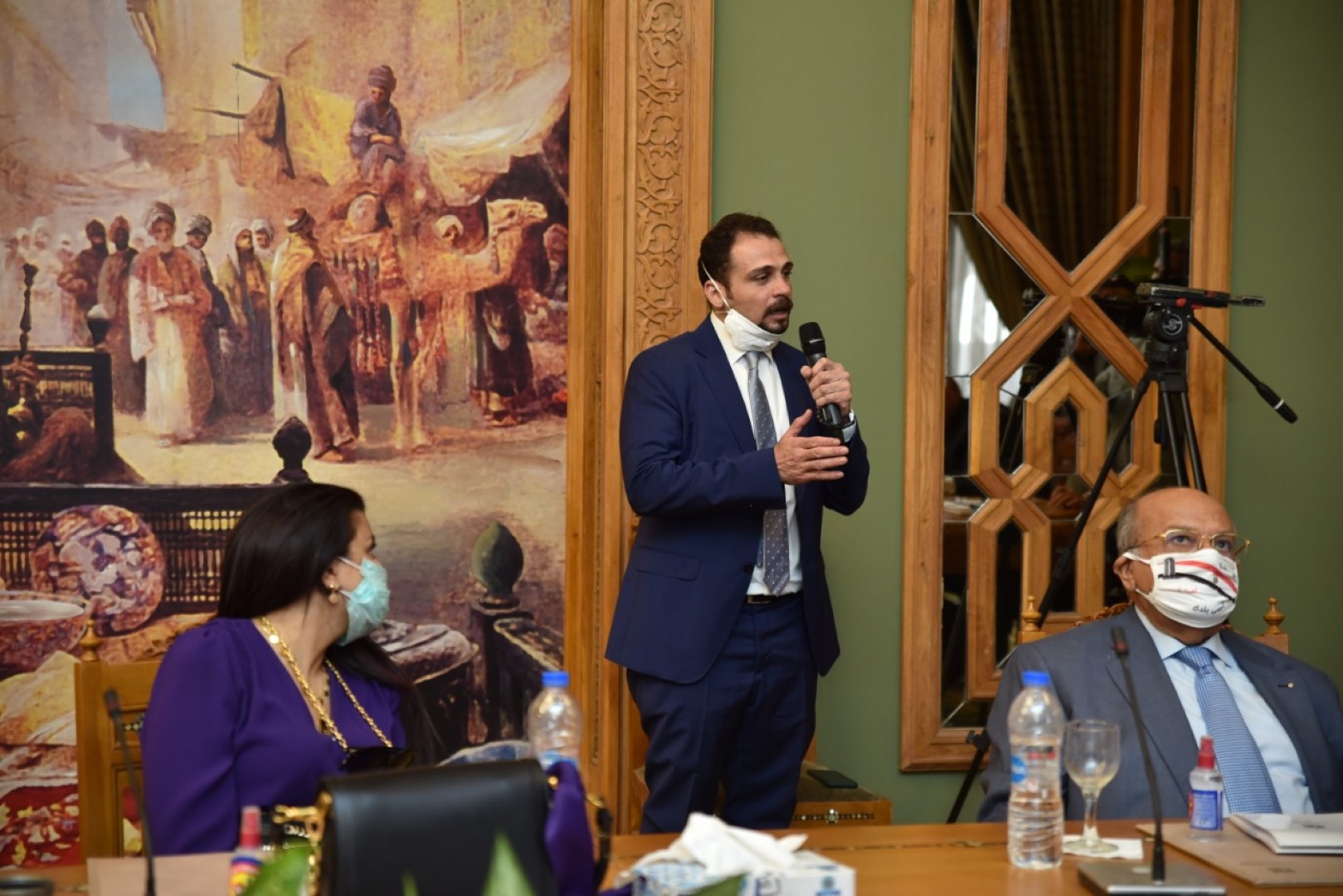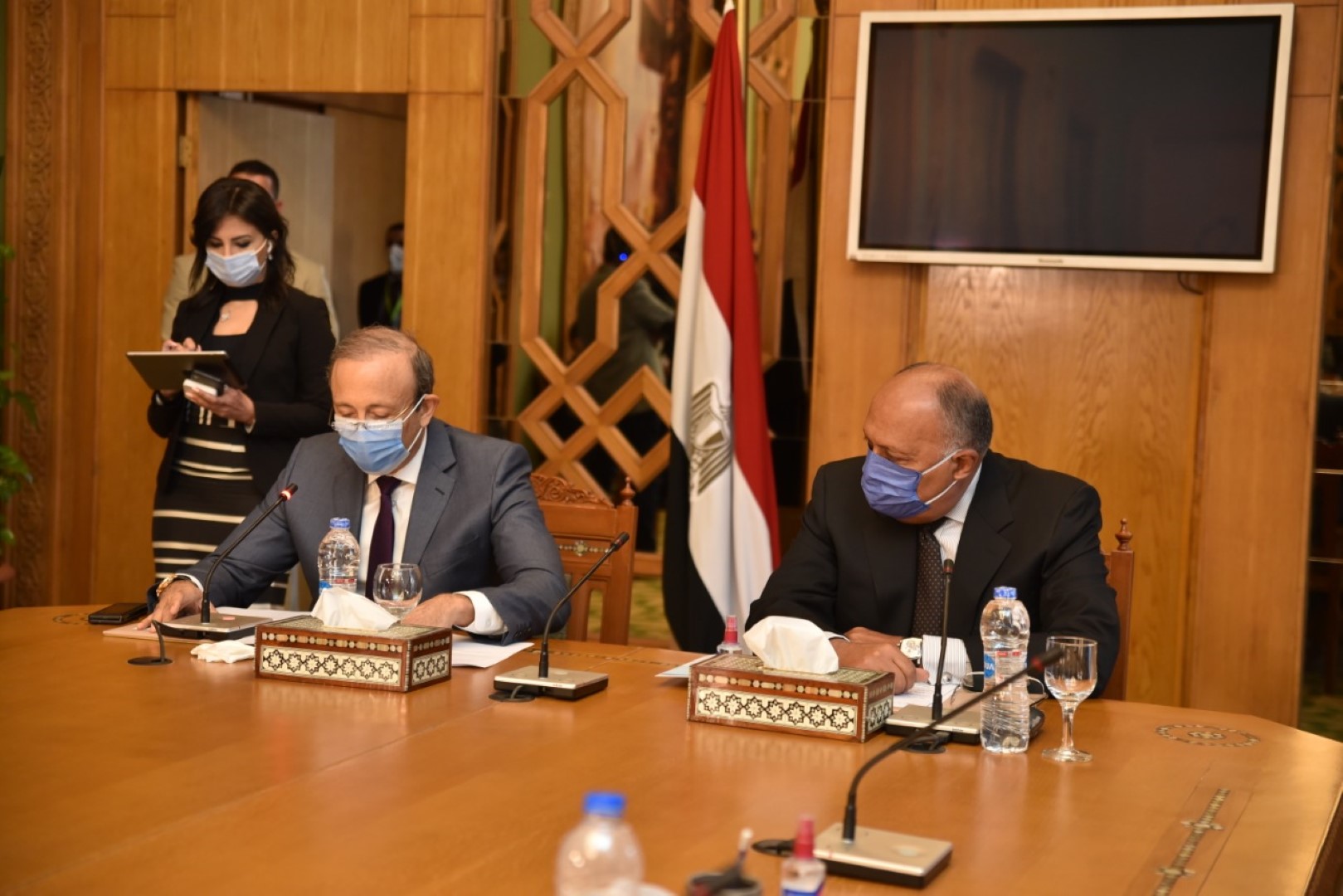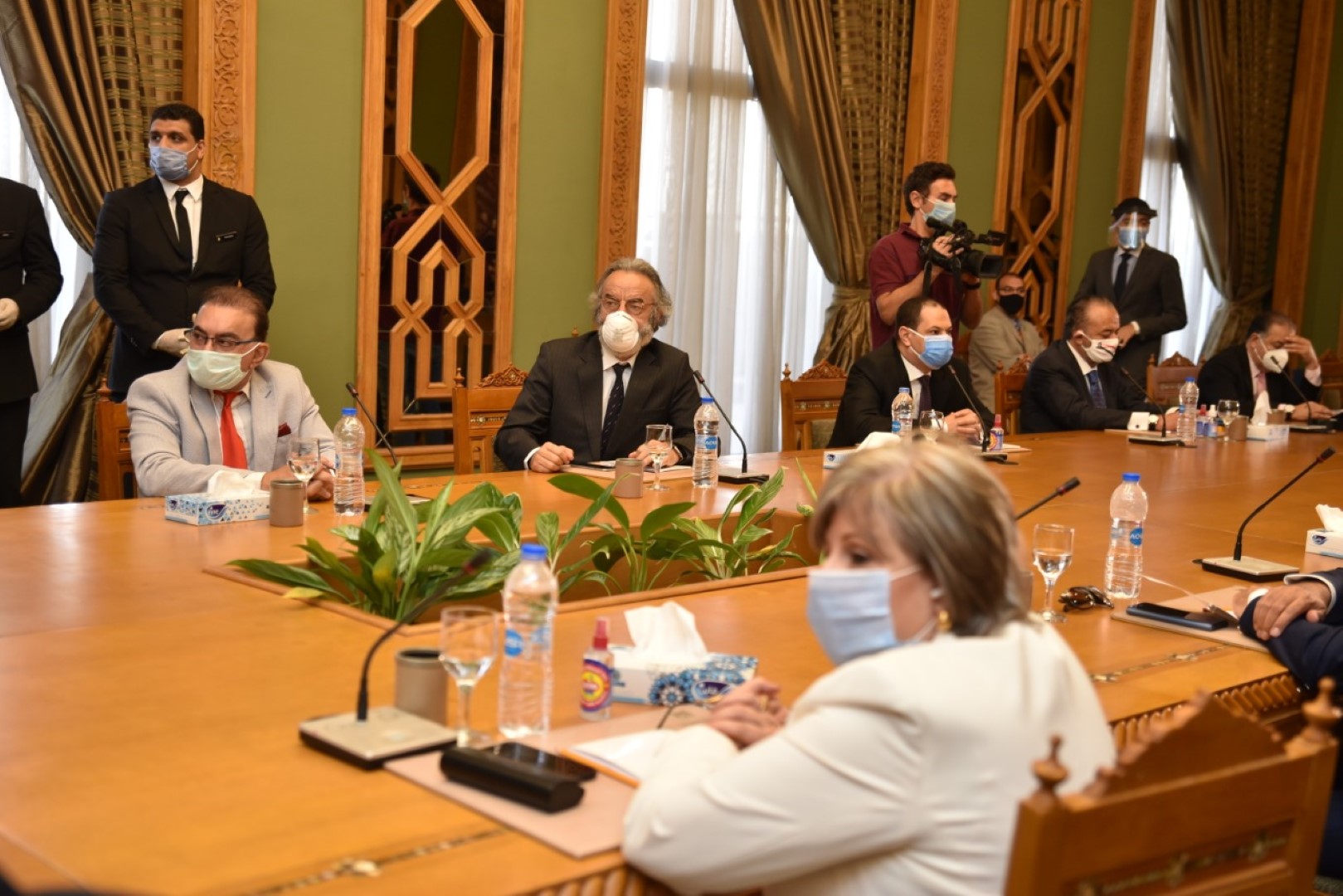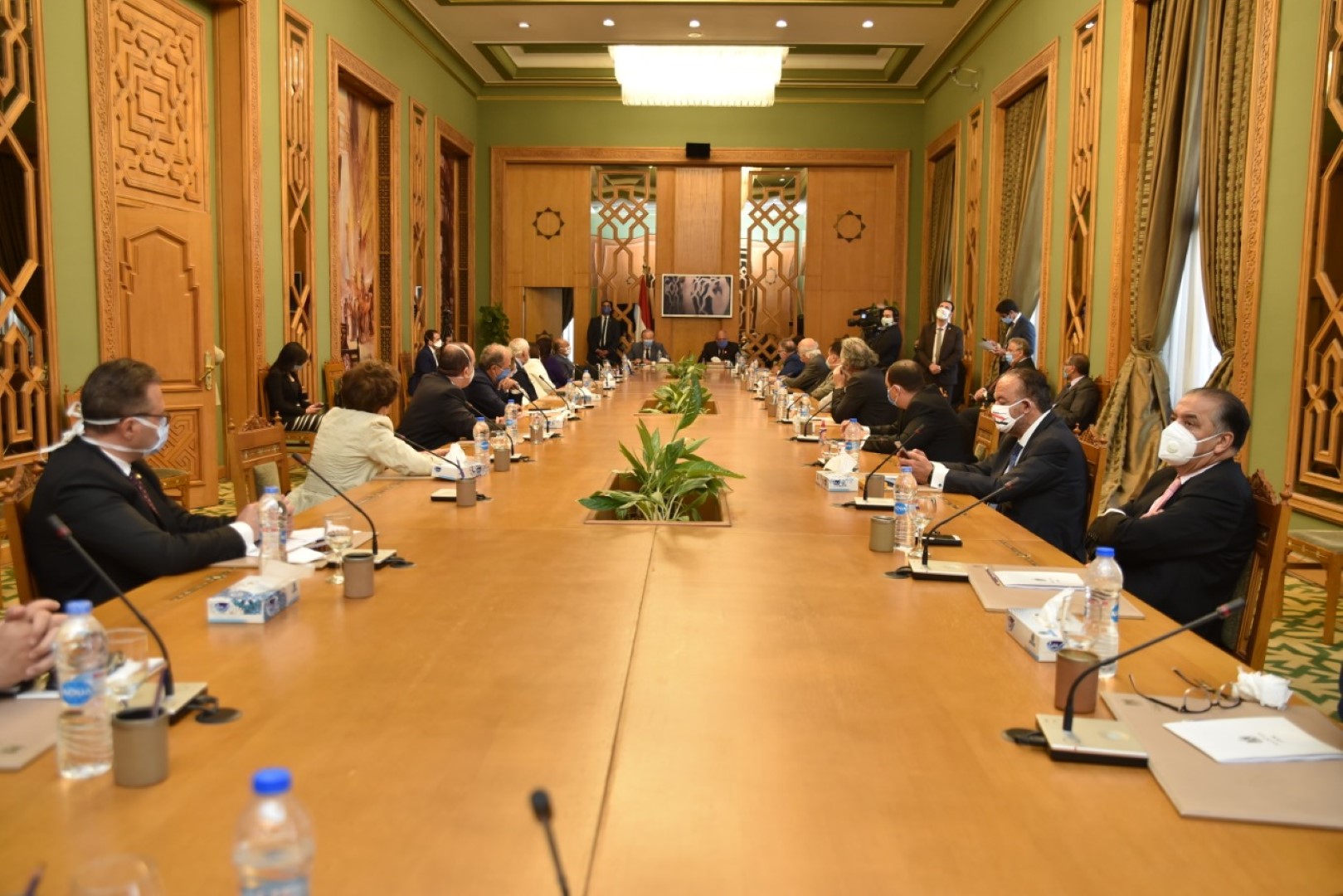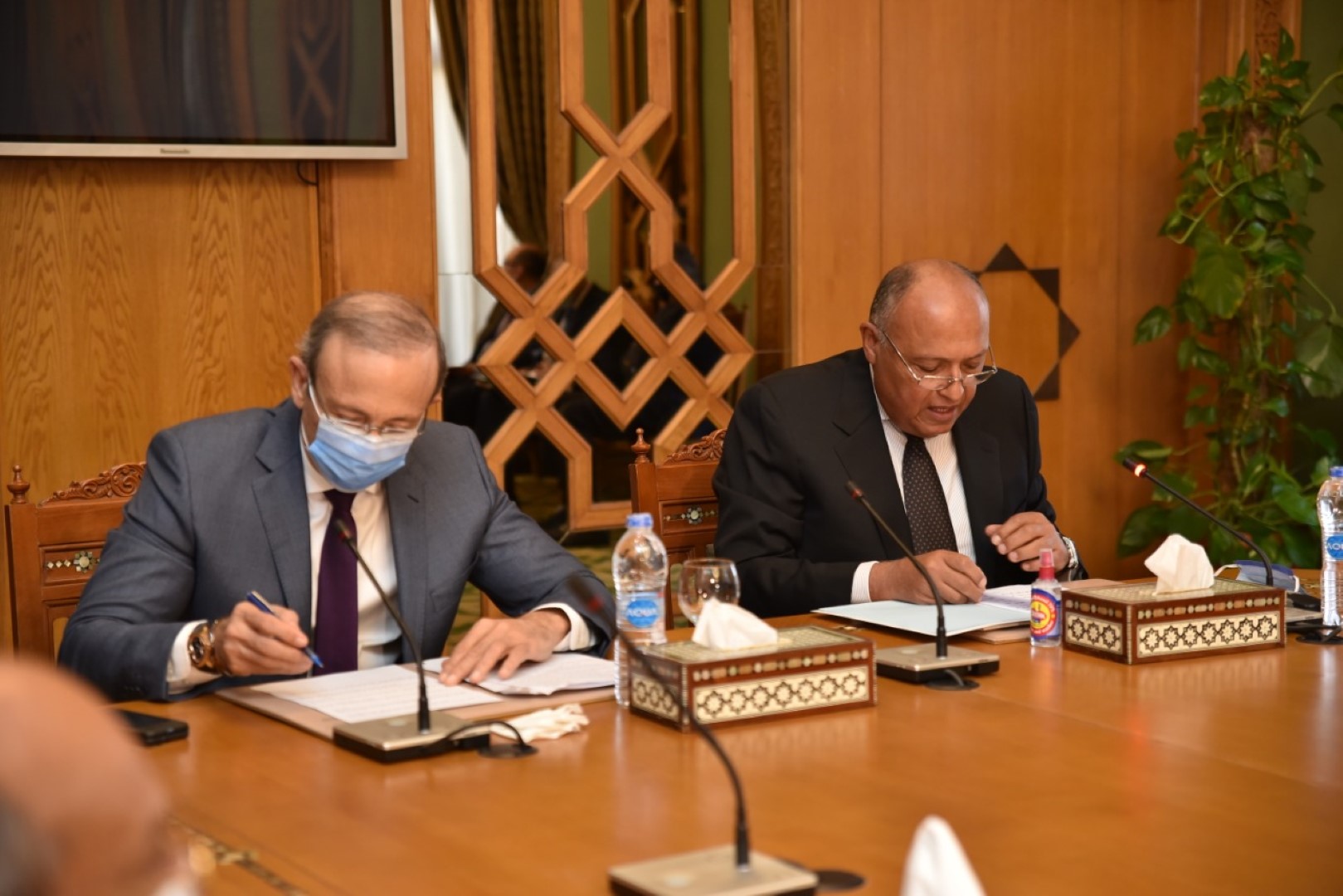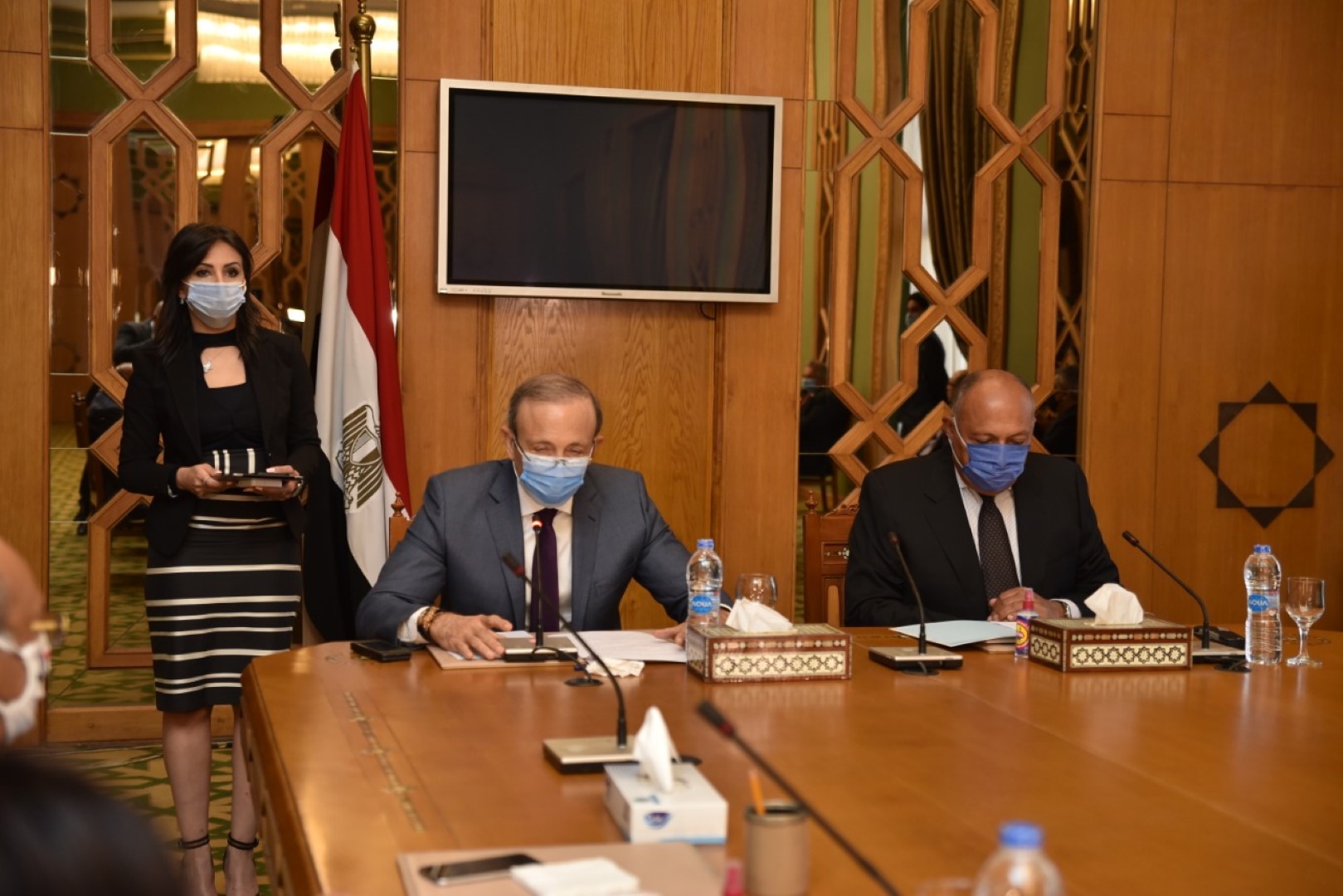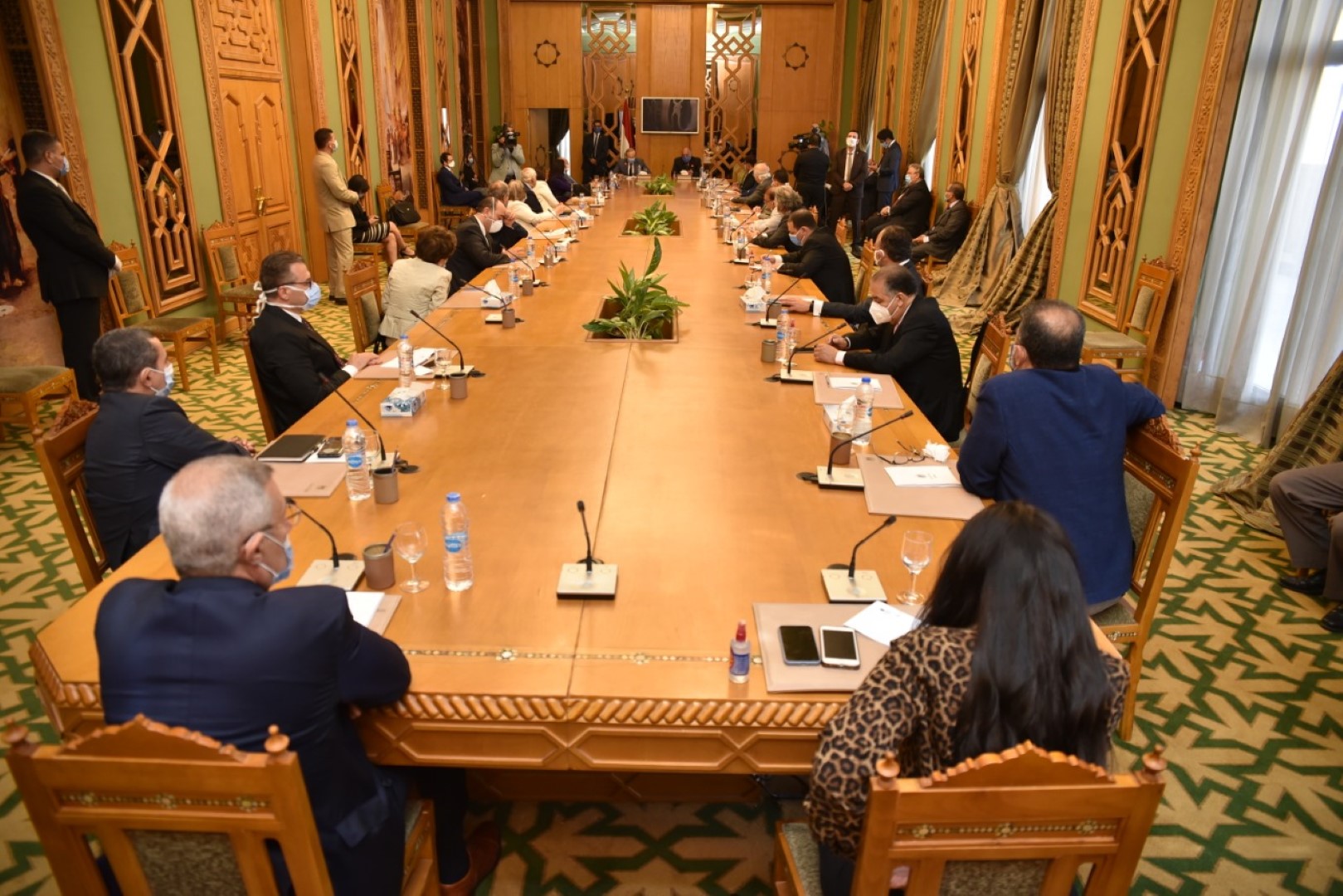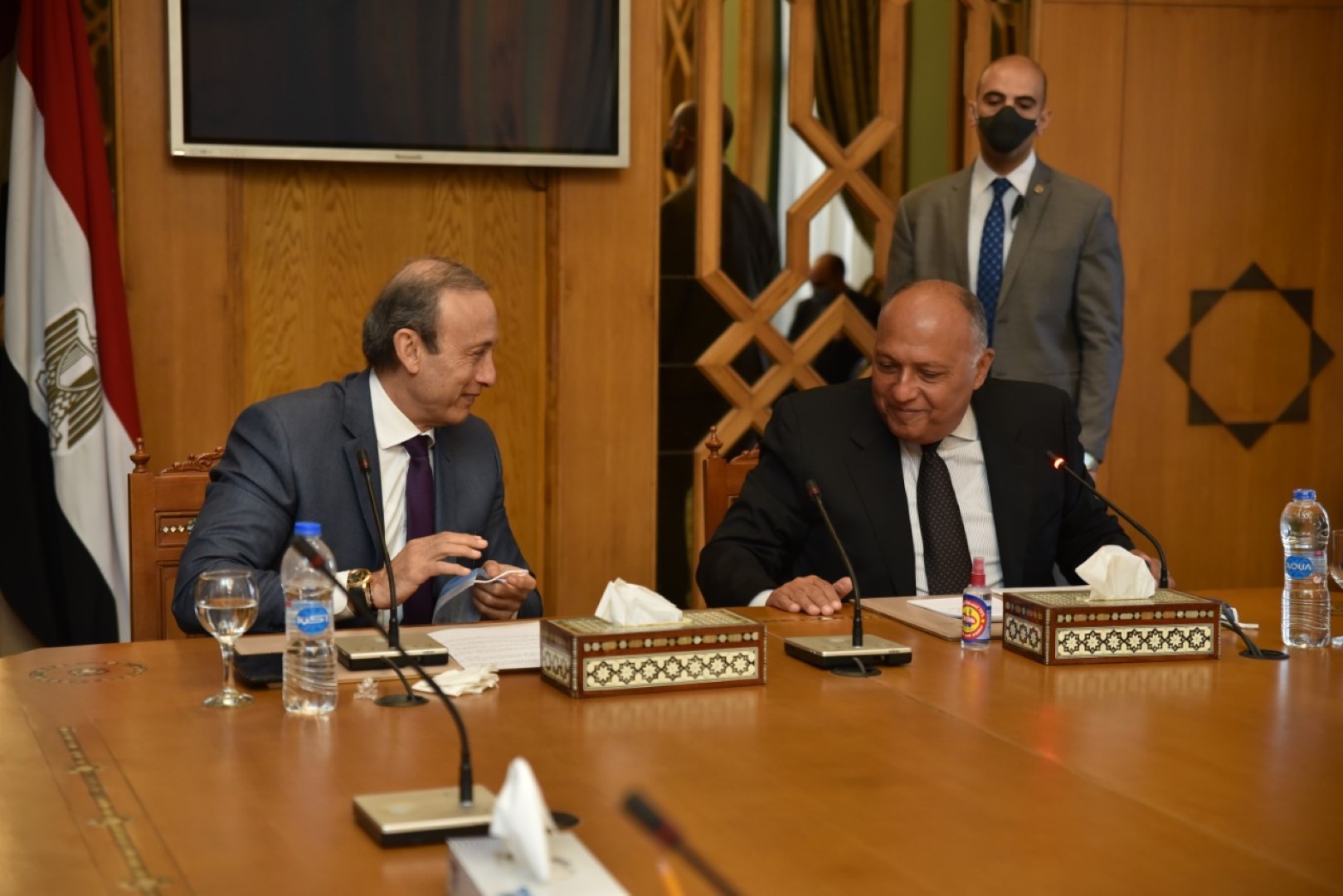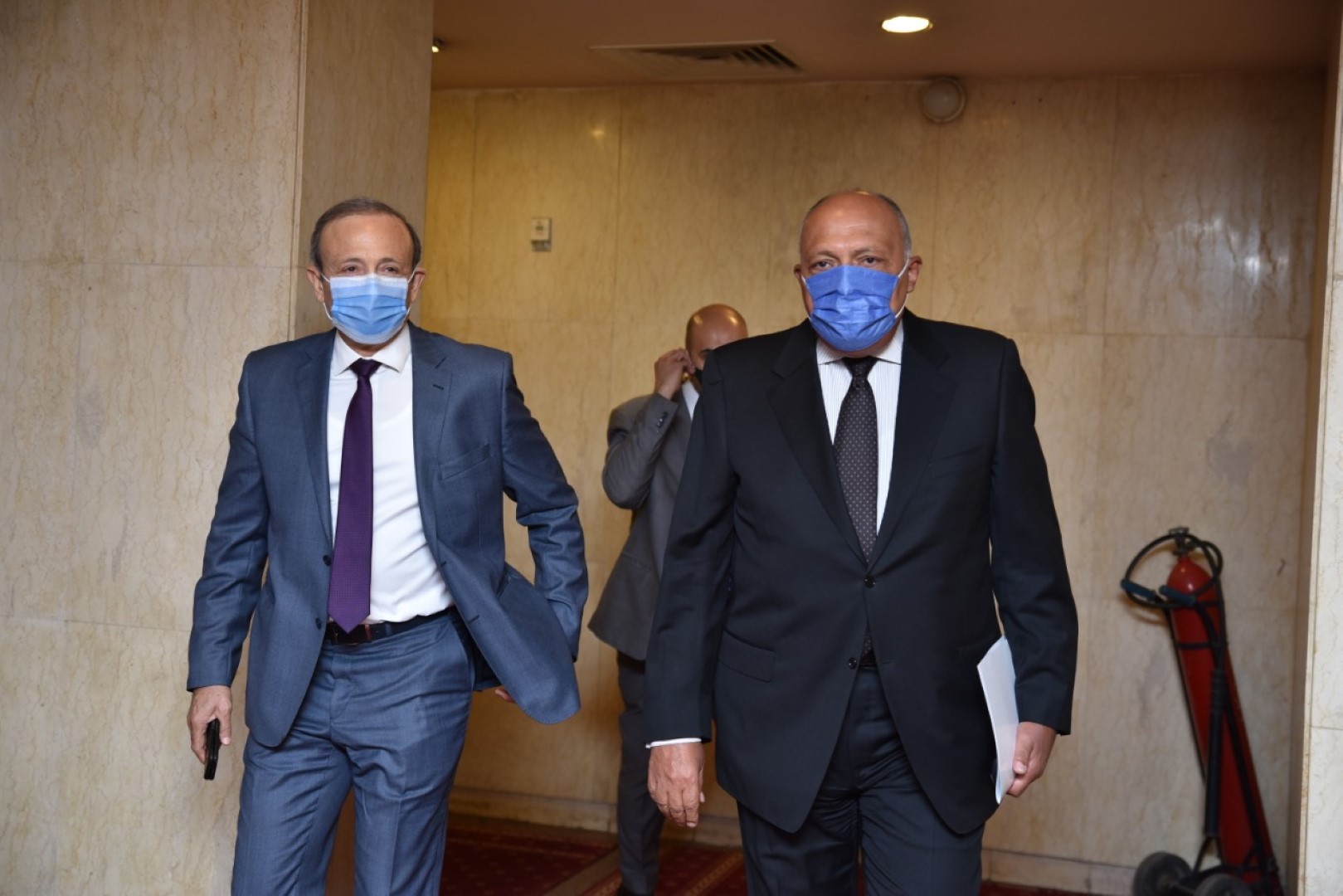
Date
Speaker(s)
Designation
Invitation
Description
In light of our optimism in improving the current conditions and gradually returning to normalcy, as well as our confidence in recovering from this crisis quickly, Canada Egypt Business Council and the Egyptian Business Council for International Cooperation did its first meeting since a long period which brought together the limited attendance (for members only) beside an online live streaming in order to enable comments, as well as Q&As for the rest of the members, experts, politicians, Arab and foreign ambassadors. The event was held with H.E. Ambassador / Sameh Shoukry, the Egyptian Minister Of Foreign Affairs, discussing the Egyptian foreign efforts to enhance cooperation between Egypt and various countries of the world, and how it is dealing with the special challenges we are facing in light of the current Covid-19 crisis. The topic addressed was; “Egyptian Diplomacy … Dealing With The Current Challenges”
In the opening remarks Eng. Motaz Raslan; on behalf of CEBC & ECIC; welcomed our dear members, as well as those who followed us through our online live streaming. He then said “I was hoping that this important meeting would be with all of our members and guests, but I have a lot of confidence that things will get better soon and we will overcome this crisis.
He continued, “with sincerity and gratitude, we should all thank the Minister of Foreign Affairs, Dr. Sameh Shoukry for providing us this opportunity and hosting us at the headquarters of the Ministry of Foreign Affairs. despite the difficult circumstances that we all know.”
There is no doubt that our seminar is being held today in very exceptional circumstances, not in Egypt but in all countries of the world. This epidemic, despite its prevalence but it is lower worldwide today.
However, it will change the map of the future politically, economically and socially because of the heavy losses it has left in economies and life, as well as the uncertainty in the budgets of all countries without exception.
Eng. Motaz also added that Egypt was not far from these repercussions, which imposed a heavy burden on the state, including the Ministry of Foreign Affairs, where it added another challenge in the current period, which was the coordination for the return of thousands of Egyptians stranded abroad, and has so far succeeded in returning more than 22,000 citizens from different countries of the world.
In the end, he stated that the Egyptian Foreign Ministry is currently facing huge challenges and fateful files, notably the Ennahda Dam and the Libyan file; In addition to its involvement in all the issues and crises that hit the region from time to time, based on its concern for the security and safety of all our Arab sister countries. However, despite all these challenges, we always trust Egyptian diplomacy to overcome all these files as usual.
H.E. Dr. Sameh Shoukry, Egyptian Minister of Foreign Affairs, At the beginning of his speech he mentioned “I would like to thank Eng. Motaz Raslan, Chairman of CEBC & ECIC for organizing this forum, at a time when our world is facing many unprecedented political, economic and social challenges as a result of the Corona pandemic, where, since the end of the Second World War, the contemporary history of humanity has not experienced a crisis of this magnitude in terms of its widespread, long-lasting and unity, which will undoubtedly have repercussions on the international system in the coming years. This important development raises many questions about the shape and nature of the international system the following day after the crisis has receded.”
H.E. Sameh Shoukry stressed that the spread of the epidemic has disrupted global supply and production chains, and the crisis has undermined economic and development gains achieved globally over the past decades, especially in developing countries, to the extent that the International Monetary Fund expected that the global economy will witness its worst recession since the “Great Depression” era in 1929.
On the social level, Shoukry explained that the pandemic forced countries to adopt policies to limit the spread of the virus that had direct implications for the individual behavior of consumers and employers and their preferences and equal, including the latest severe economic turmoil that boosted the gains of some sectors at the expense of others.
On the international level, the minister pointed out that the pandemic affected the majority of the countries of the world, and its effects extended to both positive and negative aspects, and on the positive level, the outbreak of the epidemic led to the revival of the concept of a strong national State in the light of being the only entity capable of confronting the outbreak of the epidemic and dealing with its effects comprehensively, while the pandemic at the negative level led to unprecedented polarization among states amid the exchange of accusations about their handling of the crisis, and forced States to isolate and close borders.
He added that the pandemic has not brought about a world of stability, peace and economic and social well-being, but it came against the backdrop of worsening political crises, particularly in the Arab and African regions to which Egypt belongs, which has increased the challenges that need to be dealt with to deal with these crises, and forced us to work on developing our political and diplomatic tools in order to maintain Egyptian and Arab national security alike,” the minister added. In this regard, I would like to address some of the crises that we face on the Egyptian border and in our wider vital environment, especially in Libya, Syria and Palestine, and the Issue of The Renaissance Dam.
Shoukry pointed to the results of the Cairo meeting, which Egypt called for out of its keenness to achieve the political and security stability of the Libyan state, and resulted in the conclusion of a comprehensive Libyan political initiative to end the conflict in Libya, explaining that this meeting gained special importance due to the successive developments in the Libyan arena, in addition to the international interactions surrounding the Libyan file.
Similar to the inevitability of a comprehensive political solution to the Libyan crisis, Shoukry explained that the political solution in Syria has become urgent and intolerable, it has proved beyond any doubt that resorting to military methods will only lead to more casualties and fuel the crisis among the Syrian people, calling for a comprehensive political settlement, in accordance with Security Council Resolution ‘2254’, in order to achieve the unity of Syria and its territorial integrity and the integrity of its institutions, stop the bloodshed, completely eliminate terrorism and achieve the aspirations of the people. Syrian in democracy and freedom. By the same logic, the time has come for a decisive halt, ending the protracted crisis in Yemen by implementing a political solution and ending foreign interventions from non-Arab regional parties, a necessary and fundamental demand that applies to all hotbeds of tension on the Arab scene, whether in Libya, Syria or Yemen.
As for the issue of the Renaissance Dam, which is one of the most important files related to Egypt’s national interests, Shoukry stressed that Egypt has adhered to the negotiating approach over the past years, and has resolved with sincere intentions and serious commitment towards reaching a fair and just agreement for this crisis, in a way that serves the interests of the three countries, but unfortunately Ethiopia’s intransigence and its permanent evasion of serious negotiations have disrupted the negotiating process in a way that Egypt will have to discuss other political choices that are able and responsible to remedy the impact. International peace and security must prevent Ethiopia from taking unilateral action that negatively affects Egypt’s water rights and Egypt will spare no effort to preserve its vital interests, he said.
He stressed that these unprecedented challenges resulting from the Corona epidemic, as well as successive regional and international political crises, put the mechanisms of the contemporary international order to real test, a situation in which the principle of cooperation and solidarity must be consolidated to meet those challenges. In the short term, international efforts must be combined to respond to the Corona pandemic and to take advantage of international cooperation and solidarity to contain and eliminate the pandemic, and to address its economic and social impacts, mainly by providing support to developing countries to overcome their negative economic impacts by providing stimulus packages to their economies, alleviating their accumulated debt burdens and benefiting from the instruments available to international financial institutions to the IMF and the World Bank.
“In the medium term, we must anticipate the expected polarization at the international level, which may be reflected in some conflicts, particularly those in the Middle East,” the minister added. In the long run, the international community must strengthen solidarity among peoples in the light of the founding of humanity’s destiny in the face of common challenges such as the Coronavirus, to use the effects of this pandemic to drive the development of international mechanisms, to make them more efficient in dealing with the major changes taking place in the world arena, including in connection with the maintenance of international peace and security and the end of existing conflicts, as well as to seek a more equitable international system that allows developing countries greater access to technology and medicine and drive growth in more sustainable economic sectors. For the benefit of all.’
The floor was then opened for Q&As with H.E. Dr. Sameh Shoukry.


